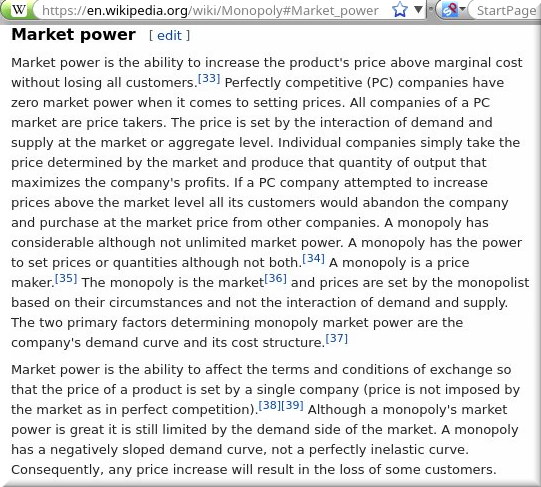

THE CHIPSET/SILICON giants are becoming fewer and bigger. This means that centralisation of respective patents (with patent thickets which prevent fair competition) carries on. This is further exacerbated by some recent industry moves.
"As promoter of software patents and a patent bully with a long track record, Qualcomm wants an even broader or thicker patent thicket."China, for a change, is standing up to evil patent bullies like Broadcom and Qualcomm; this was soon spun by IAM, which noted that "[w]hen Broadcom first went public with its audacious plan to buy-out Qualcomm, Microsoft and Google were reportedly among the first tech titans to object to the deal in private, citing concerns about a potential loss of innovation."
Qualcomm has little to do with innovation; it's all about taxation. As promoter of software patents and a patent bully with a long track record, Qualcomm wants an even broader or thicker patent thicket. According to Korean media, the "trade watchdog sets conditions for Qualcomm's NXP takeover" -- another takeover possibly in the making. To quote:
South Korea's corporate watchdog said Thursday that United States-based chipmaker Qualcomm must make several commitments to get approval for its takeover of the global Dutch company NXP here, including the sale of NXP's standard essential patents.
"Qualcomm is infesting and driving up the price of almost everything."The European Commission wrote about it as well some days ago. The opening of its statement sounded similar to Korea's. To quote: "The European Commission has approved under the EU Merger Regulation the proposed acquisition of NXP, based in the Netherlands, by Qualcomm of the US. The approval is conditional on full compliance with commitments offered by Qualcomm. Both firms are important players in the semiconductor industry."
Going back to Broadcom, it turns out that it's being investigated by the FTC right now. As Wall Street media put it the other day:
The Federal Trade Commission is investigating whether semiconductor company Broadcom Ltd. engaged in anticompetitive tactics in negotiations with customers, people familiar with the matter said.
"In this particular case what we have is PTAB in the role of protecting the larger entity; it may sound bad on the surface, but if the underlying patent/s is/are not eligible, then it's beneficial for justice and detrimental primarily to trolls."All these latest articles about Wi-Fi One, LLC v Broadcom Corp. concern time-bar decisions. As one law firm has just put it: "While the Wi-Fi One decision is confined to the reviewability of the time bar under ۤ 315(b), some believe that its rationale may extend to the reviewability of other issues. It remains to be seen how far the court will extend its reasoning, if at all, but we will keep you updated here on the AIA Blog when the court issues significant decisions."
In this particular case what we have is PTAB in the role of protecting the larger entity; it may sound bad on the surface, but if the underlying patent/s is/are not eligible, then it's beneficial for justice and detrimental primarily to trolls. ⬆